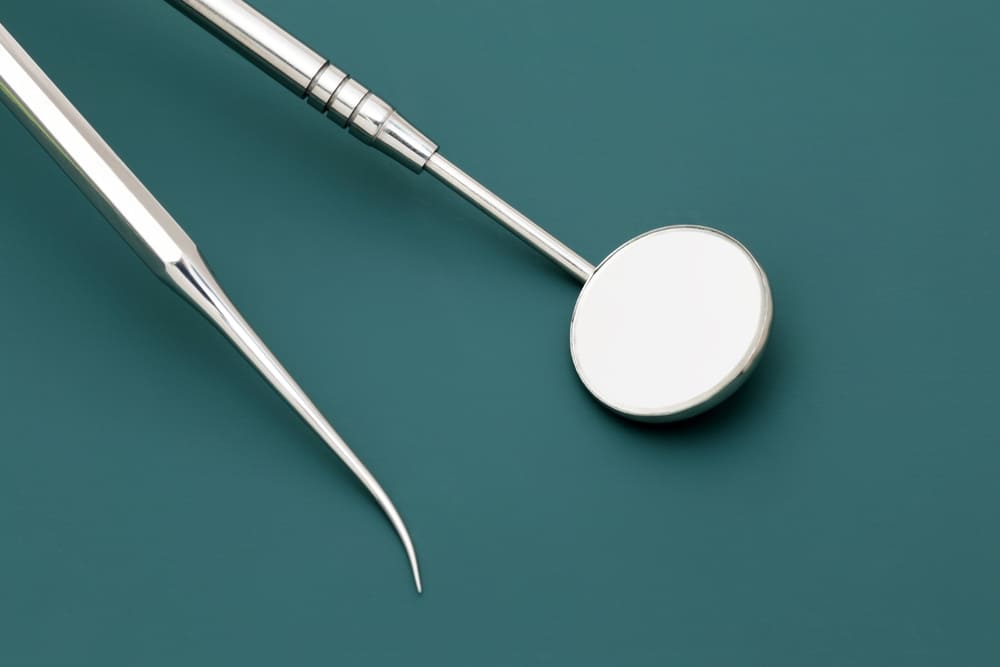Legal Pitfalls to Avoid When Buying a Dental Practice
Buying a dental practice transforms your career trajectory and financial future. The deal that looks perfect on paper can unravel post-close when undisclosed liabilities surface, payer reimbursements stall, or your landlord refuses assignment. A dental business lawyer can identify these risks before they become expensive problems. The difference between a clean acquisition and a costly mistake often comes down to spotting legal traps before you sign.
Evaluating an offer or finalizing your purchase agreement? Call (800) 499-1474 to pressure-test lease terms, structure your due diligence checklist, and lock in protections that hold up after closing.
Key Takeaways for Dental Practice Purchase Pitfalls
- Dental practice purchases let you leave behind the seller’s debts and lawsuits but reset payer contracts; stock purchases inherit all liabilities and require deeper indemnity protections and escrow holdbacks
- Landlord consent for lease assignments takes time; review assignment clauses before signing your LOI, and never waive contingencies until consent is signed
- Payer credentialing delays can hurt cash flow; file applications at least 90 days early and secure bridge financing to cover the reimbursement gap
Asset Purchase vs. Stock Purchase: Which Structure Protects You?
The legal structure of your dental practice acquisition determines liability exposure, tax treatment, and post-close continuity. Understanding the trade-offs between asset and stock purchases helps you negotiate better protections and choose the right fit for your deal.
| Factor | Asset Purchase | Stock Purchase |
| Liability exposure | Liability firewall—leave behind unknown debts, malpractice claims, and employee disputes | Inherit all liabilities—every lawsuit, tax lien, and compliance violation transfers with the entity |
| Tax treatment | Step-up in asset basis lowers future depreciation and capital gains | No basis step-up—carry forward the seller’s tax basis and potential audit exposure |
| Payer credentialing | File new applications; expect 60–120 day reimbursement delays that strain cash flow | Contract continuity—existing PPO, Medicaid, and Medicare participation remains active with immediate billing |
| Lease & real estate | Landlord consent required; risk rejection or unfavorable term renegotiation | Lease stays intact—no assignment needed, preserves favorable terms and location security |
| Contract flexibility | Selective assumptions—choose which vendor, equipment, and service contracts to take | Full package—assume all contracts, including unfavorable equipment leases and vendor obligations |
| Closing complexity | Longer timelines due to payer filings, landlord approvals, and contract transfers | Faster close—fewer third-party consents and administrative resets |
Asset purchases appeal to risk-averse buyers prioritizing liability protection and tax savings, despite payer credentialing delays. Stock purchases, on the other hand, may suit buyers who need immediate cash flow continuity, want to preserve hard-won payer contracts, or face landlords unlikely to approve assignment.
Before committing to a stock purchase, run UCC lien searches against all equipment, confirm tax clearances with state revenue departments, and verify that no Medicare or Medicaid exclusions apply to the practice entity or its providers.
Dental Office Lease Assignment Risks and Landlord Consent

Commercial leases typically require landlord consent to assign, and property owners may use the transaction as leverage to raise rent, shorten terms, or impose capital improvement charges, a common reason many dentists choose to hire a lawyer when leasing out their office space.
Before you sign the letter of intent, review the dental office lease. Confirm assignment language, remaining term, renewal options, and any subordination, non-disturbance, and attornment (SNDA) clauses that protect you if the landlord refinances or sells the building.
If the lease expires within 18 months or lacks assignment rights, negotiate an extension or relocation clause as a condition of closing. Budget extra time for landlord approvals, and do not waive financing or diligence contingencies until you hold a signed consent.
Due Diligence: Liens, Hidden Liabilities, and Compliance Gaps
Skipping due diligence invites post-close disasters. Start with UCC-1 financing statement searches through your state’s Secretary of State office to uncover equipment liens that might survive closing or require payoff. Your dental business lawyer can pull litigation dockets at county and federal courts to spot pending lawsuits, judgment liens, or unpaid contractor claims.
Next, audit regulatory compliance, including:
- DEA and state-controlled-substance registrations—confirm registrations that must transfer or reissue in your name
- OSHA, CLIA, and HIPAA documentation—confirm written policies, staff training logs, and current risk assessments exist
- State dental board licenses—verify the seller and associates hold active, unrestricted credentials with no open complaints
- Payer contracts and credentialing—obtain copies of PPO agreements, Medicaid provider numbers, and Medicare opt-out letters if applicable
Request three years of profit-and-loss statements, tax returns, and aged accounts receivable reports. Compare stated production to actual collections and write off any A/R older than 120 days when calculating purchase price.
Accounts Receivable Purchases: Collection Risk and Valuation Traps
If you agree to buy A/R, understand you are purchasing a contingent asset. Patients who owe money might dispute charges, insurers might deny claims, and aging balances rarely collect at face value.
Structure your A/R purchase with a collection-based adjustment. Escrow a portion of the purchase price and release funds only after you verify actual collections over 90 to 180 days.
Also require the seller to represent that all claims were properly billed, no refunds or chargebacks are pending, and no patients have threatened litigation. If the practice relies heavily on Medicaid or has high write-offs, you may consider excluding A/R altogether and negotiating a lower practice price.
Restrictive Covenants: Non-Compete and Non-Solicitation Enforceability
The seller’s non-compete and non-solicitation covenants protect your goodwill investment by preventing them from opening a competing office nearby or poaching your hygienists and patients. Most dental practice purchase agreements include geographic and time-based restrictions.
Enforceability varies by state. For instance, California bans non-compete agreements for licensed professionals, except in the context of a sale of a business, while Texas and Florida generally enforce reasonable restrictions.
Draft covenants narrowly tailored to protect legitimate business interests without overreaching. Pair your non-compete with a non-solicitation clause that bars the seller from contacting patients, staff, or referral sources.
Payer Credentialing and Reimbursement Delays Post-Close
Payer credentialing gaps can hurt cash flow. If you structure an asset purchase, your new practice entity must apply for participation in PPO, Medicaid, and Medicare. Credentialing can take time, and some payers do not backdate reimbursement to your closing date.
Mitigate this risk by:
- Filing credentialing applications at least 90 days before closing
- Coordinating with the seller to send patient transition letters that explain network continuity
- Confirming whether state Medicaid programs allow assignment of billing rights during the application window
- Securing bridge financing or negotiating seller carryback terms that account for cash flow delays
For stock purchases, contact each payer immediately after closing to update ownership and tax identification details. Even with entity continuity, administrative errors can freeze payments if payer systems flag mismatched data.
Patient Records, HIPAA, and Business Associate Agreements
HIPAA regulations govern the transfer of patient records during a dental practice acquisition. In asset deals, you become the new covered entity and must execute business associate agreements (BAAs) with your billing company, cloud storage vendor, and any third-party service touching protected health information. Additionally, the seller must provide complete patient files and both parties should send joint transition letters notifying patients of the ownership change.
Verify the seller maintains HIPAA-compliant policies, trains staff annually, and logs any prior breaches. Post-close, update your Notice of Privacy Practices, retrain staff, and confirm your electronic health record system encrypts data and logs access properly.
Dental Practice Purchase Agreement: Reps, Warranties, and Indemnities

Your dental practice purchase agreement allocates risk through representations, warranties, and indemnity provisions. Having a lawyer to review your contract ensures these promises accurately reflect the practice’s financials, ownership of equipment, active licenses, and the absence of pending investigations.
These reps survive closing, giving you a legal claim if the seller misrepresented material facts.
Pair representations with indemnity clauses that obligate the seller to reimburse you for losses caused by breaches. You may also structure a purchase price holdback or escrow that is held for 12 to 24 months to cover unknown claims.
If the deal includes an earnout tied to future production or collections, define metrics precisely, require transparent reporting, and cap your exposure to seller-controlled variables.
FAQ About Buying a Dental Practice
How Do Lease Assignments and Personal Guarantees Work for Dental Offices?
Commercial leases require landlord consent to assign, and landlords often demand personal guarantees or rent increases as conditions of approval. Review assignment clauses early, negotiate extensions if the term is short, and never waive diligence until you hold signed consent.
What Happens to Patient Records and HIPAA Responsibilities after Closing?
Buyers become the new HIPAA-covered entity in asset deals and must execute business associate agreements, send transition letters, and update privacy policies. Sellers must deliver complete records and disclose any prior data breaches.
Do I Need Malpractice Tail Coverage When I Buy a Practice?
Yes. Tail coverage closes the gap between the seller’s claims-made policy expiration and future claims arising from pre-sale treatment. Require the seller to purchase tail insurance or escrow funds to cover the premium.
Want a Deal That Holds Up Post-Close?

Lease traps, payer delays, and hidden liens derail dental acquisitions. Call (800) 499-1474 to map due diligence, structure your purchase agreement, and lock in protections before you sign.
